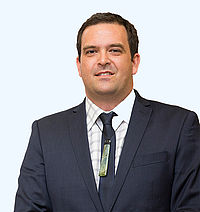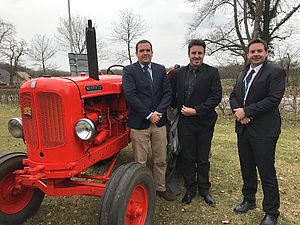We also heard about research at Waginengen University in the Netherlands which has highlighted a natural variation for photosynthesis in plants. With this knowledge they are hoping to breed crops in the future which make better use of photosynthesis – opening the possibility for much higher yields and capture of carbon dioxide.

By Turi McFarlane, 2018 Nuffield New Zealand Scholars
With a much-touted reputation as the tiny country which feeds the world, The Netherlands is the world’s second largest exporter of agricultural products after the USA. The Dutch agricultural sector is diverse and supplies a quarter of the vegetables that are exported from Europe amongst a range of other produce.
During the CSC, we were privileged to hear and visit a wide range of farmers, researchers and rural professionals who emphasised several key themes over the week:
Farming land and succession
Three farmers a day leave farming in The Netherlands and with agricultural land selling for € 60-100,000 per hectare there are massive challenges for the next generation of farmers looking to own their own farm.
Feeding the world versus niche markets
With the world population expected to grow to almost 10 billion by the year 2050, we are regularly presented with the challenge of “feeding the world”. However, how does this align with obvious opportunities for us as a nation to focus on creating high value products which command a premium price in niche markets? Food security, particularly in Africa which is expected to see the most growth over this period is critical to us all, yet perhaps our greatest opportunity as a nation is to provide technical advice and assistance to improve the food self-sufficiency in developing countries?
New technologies
A number of new technologies were mentioned throughout the week as potential game changers. CRISPR-Cas9 genome editing is definitely seen as having great potential, offering dramatic advances in speed, scope and scale of genetic improvement. However, the debate around GM and gene editing policy is obviously alive and well – “The CRISPR conundrum”.
We also heard about research at Waginengen University in The Netherlands which has highlighted a natural variation for photosynthesis in plants. With this knowledge they are hoping to breed crops in the future which make better use of photosynthesis – opening the possibility for much higher yields and capture of carbon dioxide.

To finish – a few interesting quotes from speakers over the week included:
“Every 20 years, the number of people depending on one farmer doubles in developed countries”.
“Climate change is here”.
“Agricultural land per capita has halved since the 1960s (worldwide)”.
“1/3 of globally produced food is wasted”.
“Lactose intolerance is more popular than skinny jeans”.


























